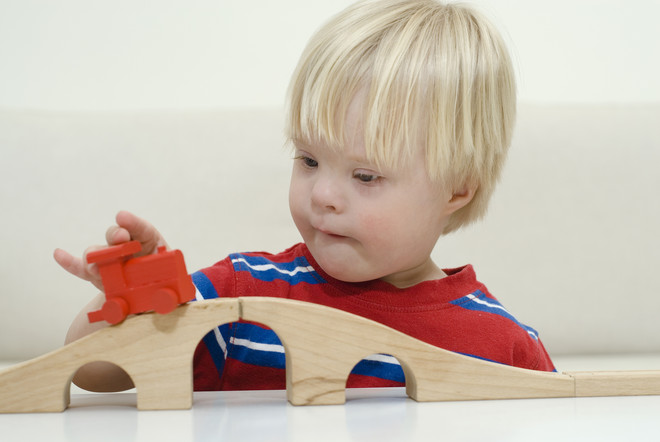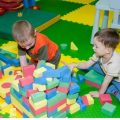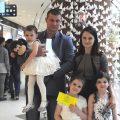Physiological features
The presence of the syndrome is associated with geneticschanges and appears in the child soon after birth. The extra chromosome affects not only the child's intelligence, but also his appearance and health. Children with Down syndrome are able to obtain basic vocational education after school Photo: Getty You can recognize such a child by his appearance. Distinguishing features are:
Children with Down syndrome are able to obtain basic vocational education after school Photo: Getty You can recognize such a child by his appearance. Distinguishing features are:
- a slightly flattened face that seems flat;
- raised corners of the eyes;
- small ears;
- a small oral cavity with a high sky;
- a broad tongue that the child often protrudes from his mouth;
- wide palms;
- short fingers and a little finger curled inwards.
This child's appearance is different fromappearance of an ordinary baby. In addition to these signs, children may have serious health problems. Congenital heart defects, intestinal defects, vision and hearing deficiencies are common. These children often catch colds. Thyroid diseases are often observed.
Child development
Compared to "healthy" children,the child will develop more slowly. He will start holding his head up, sitting up, crawling, walking and talking later. The baby is born with an intellectual disability, which can be of varying degrees. He is characterized by delayed speech and mental development. But it is impossible to predict how he will develop in general. With an individual approach, he is able to show good results. The most favorable conditions for a child are a home environment and a loving family. He can be taught to take care of himself, go shopping and help around the house. He will imitate the behavior of the people around him. Friendship with peers will teach him to play, communicate and lead an active lifestyle.
Training and types of activities with such a child
Children with mental and speech delaysdevelopment, need early pedagogical assistance, starting from birth and up to 5 years. Since children usually have slurred speech, they need to work with a speech therapist - a defectologist. This will allow them to adapt faster in kindergarten and school. It will be better if they attend a regular kindergarten and school. They can study all day in a regular class or spend part of the time in a special one. Any educational activity is difficult for them, so specialists must determine the profile and develop strengths. During classes, teachers should have an individual approach to the child. A special, simplified program is selected for him. It is necessary to take into account that such children do not perceive information by ear, so there must be a visual demonstration and multiple repetitions. Visual methods allow you to teach a child to read, write, repeat gestures and movements. Down syndrome patients are talented children, they can draw, sing or dance well. But these qualities need to be developed by creating the necessary conditions. How the life of a child with a difficult syndrome will turn out depends on the help of relatives, the participation of specialists and living conditions.









